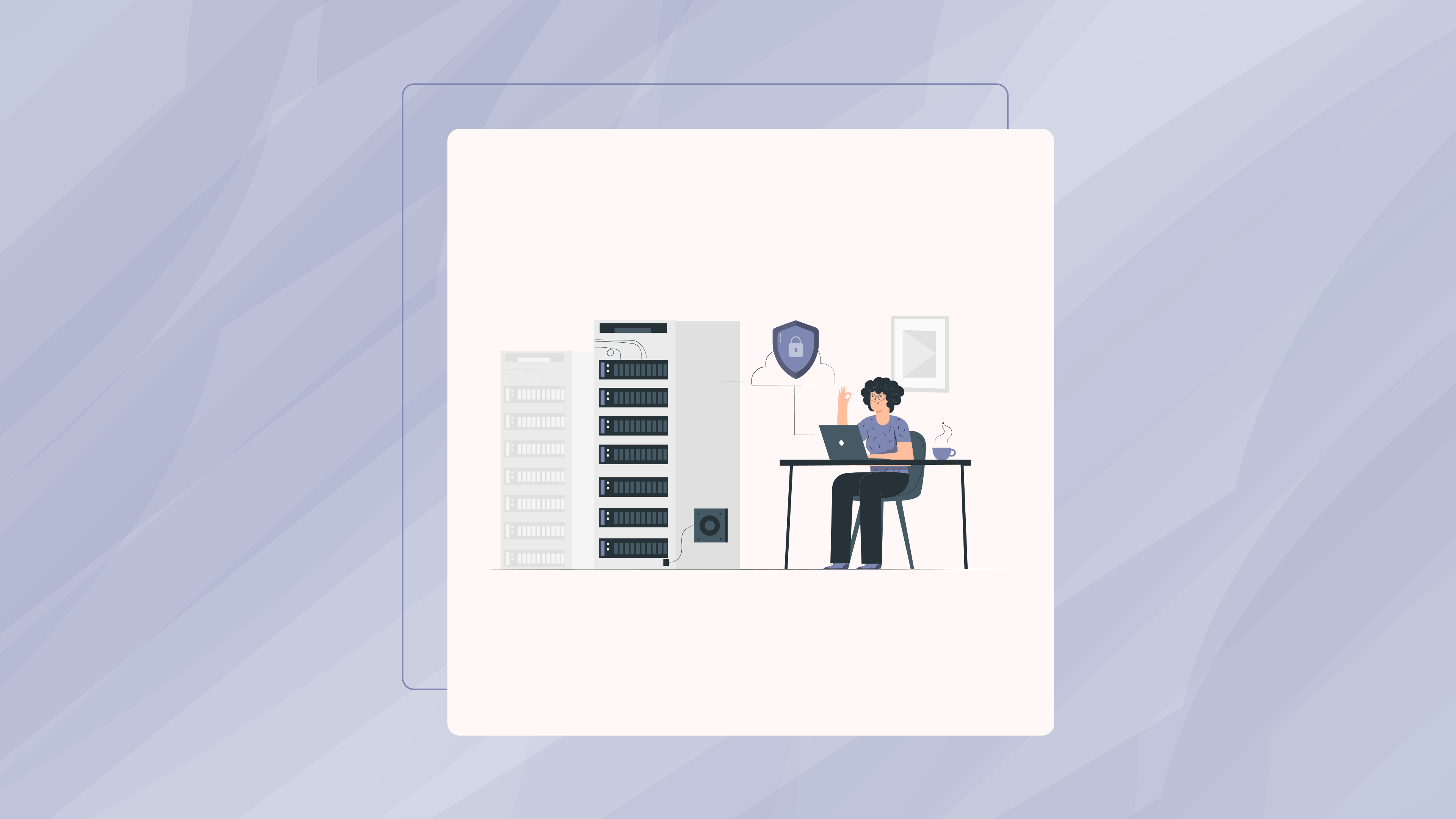BlockChain
Role of Blockchain Technology in Education in 2024: Transforming Learning and Credentialing
Role of Blockchain Technology in Education in 2024: Transforming Learning and Credentialing
Role of Blockchain Technology in Education in 2024: Transforming Learning and Credentialing
Role of Blockchain Technology in Education in 2024: Transforming Learning and Credentialing
Oct 22, 2024



Blockchain technology is no longer just a buzzword associated with cryptocurrencies like Bitcoin. It has evolved into a powerful tool that is reshaping multiple industries, including education. The education sector is increasingly embracing blockchain to solve long-standing challenges related to credentialing, student data management, transparency, and accessibility.
In this blog, we will explore the role of blockchain technology in education in 2024, its key applications, and the future vision for blockchain in revolutionizing how students, educators, and institutions interact with academic records, certifications, and learning experiences.
What is Blockchain Technology?
Before delving into its role in education, it's essential to understand what blockchain technology is. Blockchain is a decentralized, distributed ledger technology that allows data to be stored across multiple computers in a secure, tamper-proof way. Each block of data is linked to the previous one, forming a chain.
What makes blockchain unique is its immutability—once data is added, it cannot be changed without the consensus of the entire network, making it highly secure. This decentralized system ensures transparency, security, and trust, key factors that are vital in managing sensitive educational records.
Why Blockchain is Essential for Education
In 2024, the education sector is grappling with several challenges that blockchain is perfectly suited to address:
Verification of Credentials: Fraudulent degrees and certificates continue to be a concern for employers and institutions. Blockchain offers a solution by creating tamper-proof digital credentials that can be instantly verified.
Decentralized Record Management: Educational institutions need a secure and reliable system for managing student records and credentials. With blockchain, students can own and manage their own records, eliminating the need for intermediaries and streamlining data management.
Global Mobility and Access: As education becomes more globalized, students often need to transfer credits and qualifications across borders. Blockchain facilitates global access to verified educational records, making it easier for students to prove their qualifications anywhere in the world.
Lifelong Learning: Education is increasingly shifting towards a lifelong learning model, where students continue to learn and acquire new skills throughout their lives. Blockchain supports this shift by enabling micro-credentials and stackable learning, ensuring that every achievement, no matter how small, is securely recorded and recognized.
Key Applications of Blockchain in Education in 2024
Blockchain technology is playing a transformative role in several aspects of education, from secure credentialing to decentralized learning records and beyond.
1. Blockchain for Credentialing and Certifications
One of the most significant applications of blockchain in education is its ability to issue and verify digital credentials such as degrees, diplomas, and certificates. In 2024, many educational institutions have adopted blockchain to issue tamper-proof digital diplomas that are stored on the blockchain and can be accessed by students or verified by employers.
For example, a graduate from a university in Europe can share their blockchain-verified diploma with an employer in the United States, who can verify its authenticity without needing to contact the issuing institution. This eliminates the risk of credential fraud and simplifies the hiring process.
2. Decentralized Student Records
Traditionally, educational records have been centralized within institutions, making it difficult for students to access and share their data. With blockchain, students can store their records, including grades, coursework, and certifications, on a decentralized platform. This gives students full ownership of their academic achievements and allows them to share their records with anyone, anywhere, without needing to go through intermediaries.
In 2024, blockchain-based student records are also helping institutions reduce the administrative burden of managing, storing, and securing large amounts of student data.
3. Micro-Credentials and Lifelong Learning
The traditional model of education is evolving as more students pursue lifelong learning through short courses, online programs, and professional development. Blockchain enables the creation and storage of micro-credentials—smaller, more specific qualifications that recognize a student’s skills and knowledge in particular areas.
These micro-credentials can be stored on the blockchain and stacked over time to demonstrate a broader range of competencies. Whether it’s learning new programming skills, completing a leadership course, or attending a workshop, each learning experience can be securely recorded on the blockchain and verified by future employers.
4. Smart Contracts for Education
Blockchain’s smart contract functionality is also gaining traction in education. Smart contracts are self-executing contracts with the terms of the agreement directly written into code. In an educational context, smart contracts can automate various administrative processes, such as:
Tuition Payment Agreements: Smart contracts can automate tuition fee payments based on predefined conditions. For example, a student's tuition payment can be automatically released when they complete specific course requirements.
Credential Issuance: Smart contracts can automatically issue digital certificates or degrees when a student meets specific academic milestones, ensuring fast, secure, and transparent credentialing.
Automated Scholarships: Scholarships and financial aid can be distributed through smart contracts based on a student's performance, attendance, or financial need, reducing delays and ensuring accurate fund distribution.
Conclusion
Blockchain technology is revolutionizing the education sector by offering secure, decentralized, and transparent solutions for managing and verifying credentials. From tamper-proof diplomas to decentralized student records, blockchain provides a more efficient and reliable system for students, educators, and employers alike.
As blockchain continues to develop, its role in education will likely expand, paving the way for a more globalized, accessible, and student-centric educational system. By embracing blockchain technology, institutions can improve the security, transparency, and flexibility of their academic processes, ultimately transforming how we approach learning and credentialing in the digital age.
Blockchain technology is no longer just a buzzword associated with cryptocurrencies like Bitcoin. It has evolved into a powerful tool that is reshaping multiple industries, including education. The education sector is increasingly embracing blockchain to solve long-standing challenges related to credentialing, student data management, transparency, and accessibility.
In this blog, we will explore the role of blockchain technology in education in 2024, its key applications, and the future vision for blockchain in revolutionizing how students, educators, and institutions interact with academic records, certifications, and learning experiences.
What is Blockchain Technology?
Before delving into its role in education, it's essential to understand what blockchain technology is. Blockchain is a decentralized, distributed ledger technology that allows data to be stored across multiple computers in a secure, tamper-proof way. Each block of data is linked to the previous one, forming a chain.
What makes blockchain unique is its immutability—once data is added, it cannot be changed without the consensus of the entire network, making it highly secure. This decentralized system ensures transparency, security, and trust, key factors that are vital in managing sensitive educational records.
Why Blockchain is Essential for Education
In 2024, the education sector is grappling with several challenges that blockchain is perfectly suited to address:
Verification of Credentials: Fraudulent degrees and certificates continue to be a concern for employers and institutions. Blockchain offers a solution by creating tamper-proof digital credentials that can be instantly verified.
Decentralized Record Management: Educational institutions need a secure and reliable system for managing student records and credentials. With blockchain, students can own and manage their own records, eliminating the need for intermediaries and streamlining data management.
Global Mobility and Access: As education becomes more globalized, students often need to transfer credits and qualifications across borders. Blockchain facilitates global access to verified educational records, making it easier for students to prove their qualifications anywhere in the world.
Lifelong Learning: Education is increasingly shifting towards a lifelong learning model, where students continue to learn and acquire new skills throughout their lives. Blockchain supports this shift by enabling micro-credentials and stackable learning, ensuring that every achievement, no matter how small, is securely recorded and recognized.
Key Applications of Blockchain in Education in 2024
Blockchain technology is playing a transformative role in several aspects of education, from secure credentialing to decentralized learning records and beyond.
1. Blockchain for Credentialing and Certifications
One of the most significant applications of blockchain in education is its ability to issue and verify digital credentials such as degrees, diplomas, and certificates. In 2024, many educational institutions have adopted blockchain to issue tamper-proof digital diplomas that are stored on the blockchain and can be accessed by students or verified by employers.
For example, a graduate from a university in Europe can share their blockchain-verified diploma with an employer in the United States, who can verify its authenticity without needing to contact the issuing institution. This eliminates the risk of credential fraud and simplifies the hiring process.
2. Decentralized Student Records
Traditionally, educational records have been centralized within institutions, making it difficult for students to access and share their data. With blockchain, students can store their records, including grades, coursework, and certifications, on a decentralized platform. This gives students full ownership of their academic achievements and allows them to share their records with anyone, anywhere, without needing to go through intermediaries.
In 2024, blockchain-based student records are also helping institutions reduce the administrative burden of managing, storing, and securing large amounts of student data.
3. Micro-Credentials and Lifelong Learning
The traditional model of education is evolving as more students pursue lifelong learning through short courses, online programs, and professional development. Blockchain enables the creation and storage of micro-credentials—smaller, more specific qualifications that recognize a student’s skills and knowledge in particular areas.
These micro-credentials can be stored on the blockchain and stacked over time to demonstrate a broader range of competencies. Whether it’s learning new programming skills, completing a leadership course, or attending a workshop, each learning experience can be securely recorded on the blockchain and verified by future employers.
4. Smart Contracts for Education
Blockchain’s smart contract functionality is also gaining traction in education. Smart contracts are self-executing contracts with the terms of the agreement directly written into code. In an educational context, smart contracts can automate various administrative processes, such as:
Tuition Payment Agreements: Smart contracts can automate tuition fee payments based on predefined conditions. For example, a student's tuition payment can be automatically released when they complete specific course requirements.
Credential Issuance: Smart contracts can automatically issue digital certificates or degrees when a student meets specific academic milestones, ensuring fast, secure, and transparent credentialing.
Automated Scholarships: Scholarships and financial aid can be distributed through smart contracts based on a student's performance, attendance, or financial need, reducing delays and ensuring accurate fund distribution.
Conclusion
Blockchain technology is revolutionizing the education sector by offering secure, decentralized, and transparent solutions for managing and verifying credentials. From tamper-proof diplomas to decentralized student records, blockchain provides a more efficient and reliable system for students, educators, and employers alike.
As blockchain continues to develop, its role in education will likely expand, paving the way for a more globalized, accessible, and student-centric educational system. By embracing blockchain technology, institutions can improve the security, transparency, and flexibility of their academic processes, ultimately transforming how we approach learning and credentialing in the digital age.
Blockchain technology is no longer just a buzzword associated with cryptocurrencies like Bitcoin. It has evolved into a powerful tool that is reshaping multiple industries, including education. The education sector is increasingly embracing blockchain to solve long-standing challenges related to credentialing, student data management, transparency, and accessibility.
In this blog, we will explore the role of blockchain technology in education in 2024, its key applications, and the future vision for blockchain in revolutionizing how students, educators, and institutions interact with academic records, certifications, and learning experiences.
What is Blockchain Technology?
Before delving into its role in education, it's essential to understand what blockchain technology is. Blockchain is a decentralized, distributed ledger technology that allows data to be stored across multiple computers in a secure, tamper-proof way. Each block of data is linked to the previous one, forming a chain.
What makes blockchain unique is its immutability—once data is added, it cannot be changed without the consensus of the entire network, making it highly secure. This decentralized system ensures transparency, security, and trust, key factors that are vital in managing sensitive educational records.
Why Blockchain is Essential for Education
In 2024, the education sector is grappling with several challenges that blockchain is perfectly suited to address:
Verification of Credentials: Fraudulent degrees and certificates continue to be a concern for employers and institutions. Blockchain offers a solution by creating tamper-proof digital credentials that can be instantly verified.
Decentralized Record Management: Educational institutions need a secure and reliable system for managing student records and credentials. With blockchain, students can own and manage their own records, eliminating the need for intermediaries and streamlining data management.
Global Mobility and Access: As education becomes more globalized, students often need to transfer credits and qualifications across borders. Blockchain facilitates global access to verified educational records, making it easier for students to prove their qualifications anywhere in the world.
Lifelong Learning: Education is increasingly shifting towards a lifelong learning model, where students continue to learn and acquire new skills throughout their lives. Blockchain supports this shift by enabling micro-credentials and stackable learning, ensuring that every achievement, no matter how small, is securely recorded and recognized.
Key Applications of Blockchain in Education in 2024
Blockchain technology is playing a transformative role in several aspects of education, from secure credentialing to decentralized learning records and beyond.
1. Blockchain for Credentialing and Certifications
One of the most significant applications of blockchain in education is its ability to issue and verify digital credentials such as degrees, diplomas, and certificates. In 2024, many educational institutions have adopted blockchain to issue tamper-proof digital diplomas that are stored on the blockchain and can be accessed by students or verified by employers.
For example, a graduate from a university in Europe can share their blockchain-verified diploma with an employer in the United States, who can verify its authenticity without needing to contact the issuing institution. This eliminates the risk of credential fraud and simplifies the hiring process.
2. Decentralized Student Records
Traditionally, educational records have been centralized within institutions, making it difficult for students to access and share their data. With blockchain, students can store their records, including grades, coursework, and certifications, on a decentralized platform. This gives students full ownership of their academic achievements and allows them to share their records with anyone, anywhere, without needing to go through intermediaries.
In 2024, blockchain-based student records are also helping institutions reduce the administrative burden of managing, storing, and securing large amounts of student data.
3. Micro-Credentials and Lifelong Learning
The traditional model of education is evolving as more students pursue lifelong learning through short courses, online programs, and professional development. Blockchain enables the creation and storage of micro-credentials—smaller, more specific qualifications that recognize a student’s skills and knowledge in particular areas.
These micro-credentials can be stored on the blockchain and stacked over time to demonstrate a broader range of competencies. Whether it’s learning new programming skills, completing a leadership course, or attending a workshop, each learning experience can be securely recorded on the blockchain and verified by future employers.
4. Smart Contracts for Education
Blockchain’s smart contract functionality is also gaining traction in education. Smart contracts are self-executing contracts with the terms of the agreement directly written into code. In an educational context, smart contracts can automate various administrative processes, such as:
Tuition Payment Agreements: Smart contracts can automate tuition fee payments based on predefined conditions. For example, a student's tuition payment can be automatically released when they complete specific course requirements.
Credential Issuance: Smart contracts can automatically issue digital certificates or degrees when a student meets specific academic milestones, ensuring fast, secure, and transparent credentialing.
Automated Scholarships: Scholarships and financial aid can be distributed through smart contracts based on a student's performance, attendance, or financial need, reducing delays and ensuring accurate fund distribution.
Conclusion
Blockchain technology is revolutionizing the education sector by offering secure, decentralized, and transparent solutions for managing and verifying credentials. From tamper-proof diplomas to decentralized student records, blockchain provides a more efficient and reliable system for students, educators, and employers alike.
As blockchain continues to develop, its role in education will likely expand, paving the way for a more globalized, accessible, and student-centric educational system. By embracing blockchain technology, institutions can improve the security, transparency, and flexibility of their academic processes, ultimately transforming how we approach learning and credentialing in the digital age.
Schedule your Free Demo
Schedule your Free Demo
Empower Your Organization’s Growth with the Future of Blockchain Technology
Empower Your Organization’s Growth with the Future of Blockchain Technology
Book a Demo



